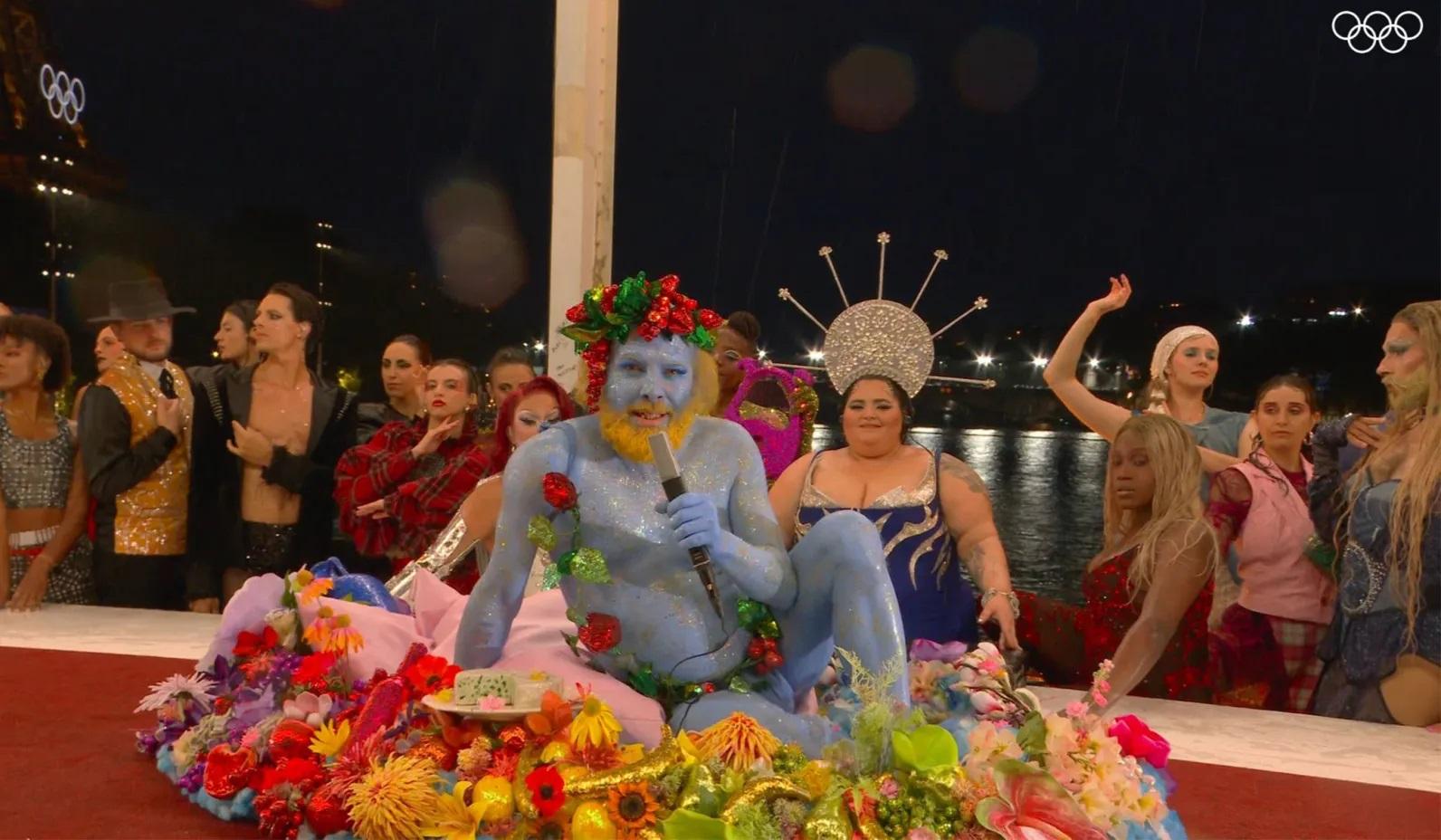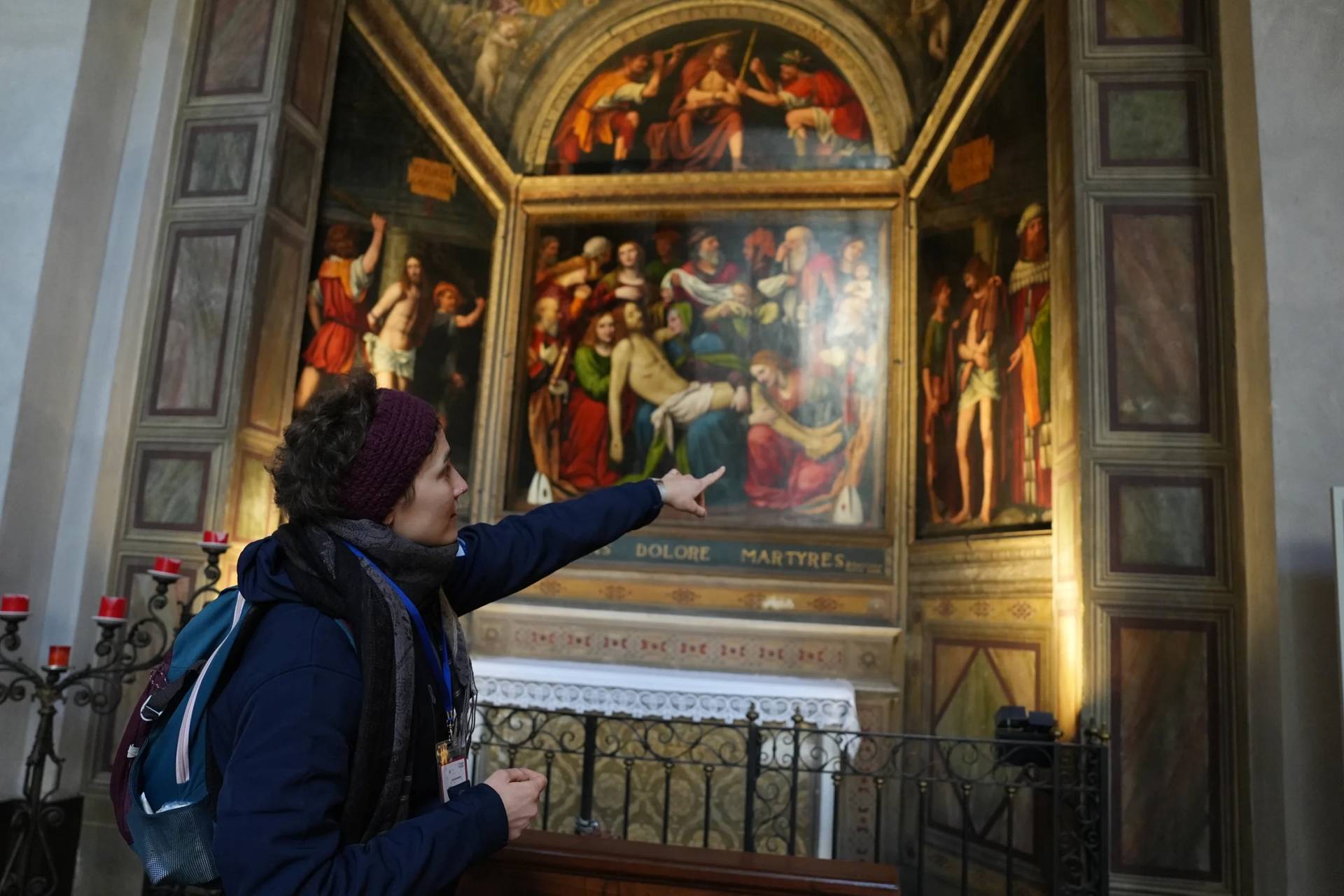BOSTON – After the opening ceremony of the Paris Olympic Games inspired shock and drew sharp criticism over an apparent drag parody of the Last Supper, Catholic leaders in France and around the world have condemned the incident.
“The values and the principles expressed and disseminated by sport and Olympism contribute to this need for unity and fraternity that our world needs so much, respecting the convictions of all, around the sport that brings us together and in order to promote peace among nations and hearts,” the French bishops said in a July 27 statement.
The opening ceremony organized by the Organizing Committee for the Olympic and Paralympic Games (COJOP), they said, “offered the whole world wonderful moments of beauty and joy, rich in emotions and universally acclaimed.”
However, they noted that the ceremony also “unfortunately included scenes of derision and mockery of Christianity, which we deeply deplore.”
The July 26 opening Olympic opening ceremony featured a fashion show with men in drag making suggestive runway walks, and included what appeared to a mockery of the Last Supper.
At one point during the ceremony, a group of 18 drag performers, including several famous Drag Race France personalities, struck poses behind what appeared to be a long table with the Seine River and Eiffel Tower in the background.
At the center was a woman in a low-cut dress wearing a large silver headdress, reminiscent of the halo behind Jesus’s head in many artistic depictions of the Last Supper, indicating his divine status as the son of God. The woman made a heart shape with her hands as the group stared into the camera before breaking out into a routine.
As models then took the stage for an impromptu fashion show, the Last Supper characters swayed on the sidelines as a little girl stood with them.
Later, a large serving tray was placed on the stage, with the top being removed to reveal a scantily clad man painted head to toe in blue, apparently evoking the Greek God Dionysus in a bid to point to the “absurdity of violence between human beings,” according to the official English-language Olympic Games profile on social media platform X, previously known as Twitter.
Organizers came under fire for the spectacle, with critics condemning not only the provocative nature of the drag show and the apparent mockery of Christianity, but also for the presence of a child at the table alongside the men in drag.
Some commentators have claimed that the performance was evocative of the feast of Dionysus, rather than the Last Supper, as a nod to the Greek roots of the Olympic games. However, the vast majority have associated it with the Last Supper, as the layout was reminiscent of artist Leonardo Da Vinci’s famed painting.
French member of parliament Marion Maréchal, a practicing Catholic, wrote on X, “To all the Christians of the world who are watching the #Paris2024 ceremony and felt insulted by this drag queen parody of the Last Supper, know that it is not France that is speaking but a left-wing minority ready for any provocation.”
Italian Archbishop Vincenzo Paglia, president of the Vatican’s Pontifical Academy for Life, wrote on X that “the derision and the mockery of the Last Supper” at the Paris Olympics, which he said was “rightly deplored” by the French bishops, “reveals a profound question.”
“Everyone, absolutely everyone, wants to sit at the table where Jesus gives his life for all and teaches love,” he said.
Maltese Archbishop Charles Scicluna, who serves as archbishop of Malta and as adjunct secretary of the disciplinary section of the Vatican’s Dicastery for the Doctrine of the Faith, lodged a formal complaint with the French ambassador to Malta, and has urged others to do the same.
In his complaint, which he published on social media, Scicluna said, “I would like to express my distress and great disappointment at the insult to us Christians during the opening ceremony of the Paris 2024 Olympics when a group of drag artists parodied the Last Supper of Jesus.”
Bishop Andrew Cozzens of Crookston, Minnesota, who serves as Chairman of the Board of the National Eucharistic Congress and who in that capacity recently presided over the event in Indianapolis, which drew some 50,000 people, sent a response to all congress participants about the Olympic performance.
In his July 27 statement, Cozzens pointed to the irony that, shortly after tens of thousands coming together to venerate the Eucharist, “Nearly 1 billion men, women, and children, in person and through live telecast, witnessed the public mockery of the Mass.”
Da Vinci’s Last Supper, he said, “was depicted in heinous fashion, leaving us in such shock, sorry and righteous anger that words cannot describe it.”
Cozzens urged Christians, and Catholics in particular, to respond with prayer and fasting, saying, “We are invited to enter into this moment of passion with him, this moment of public shame, mockery, and persecution.”
“We do this through prayer and fasting,” he said, urging Catholics to pray at Sunday Mass for “healing and forgiveness for all those who participated in this mockery.”
For those who speak publicly about the performance, Cozzens urged Christians to speak clearly, but with charity.
Bishop Robert Barron of Winona-Rochester, Minnesota, founder of the popular Word on Fire ministry which is a benefactor of Crux, joined the chorus.
In a video post on X, Barron said the parody reflected a “deeply secularist postmodern society” and represented “gross mockery.”
Barron questioned why France, which prides itself on a culture of “honoring the individual and of human rights and freedom” based on the country’s Christian roots, chose to “mock the Christian faith.”
He urged Christians and Catholics to not be passive, but to make their “voices heard.”
Jewish commentators and people of other faiths also decried the performance on social media.
In their statement, the French bishops thanked members of other religious denominations who have reached out in the wake of the opening ceremony to express “their solidarity with us.”
“This morning, we think of all the Christians of all the continents who have been hurt by the excess and provocation of certain scenes,” they said, and voiced hope that “they understand that the Olympic celebration extends far beyond the ideological biases of a few artists.”
Sport, the bishops said, “is a wonderful human activity that deeply rejoices the hearts of athletes and spectators. Olympism is a movement at the service of this reality of unity and human fraternity.”
“Let’s get to the field of competitions, may it bring truth, consolation and joy to all!” they said.
Follow Elise Ann Allen on X: @eliseannallen













